Your complete guide to Landscaping, Retaining Wall and Paving Prices
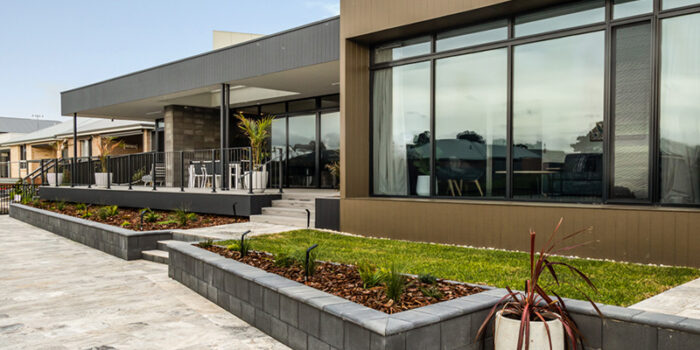
It’s easy to get confused about how much it costs for supply and installation of any retaining wall quotes and paving prices. There are many contributing factors that can vary the price for these types of landscaping projects. At APC, we’re here to help and also shed some light on how you can avoid those hidden charges plus tips on hiring a tradie to complete the job.
APC does not install and only supplies product however we are able to refer local tradies in your area that are licensed, insured and qualified to do the project you are undertaking. As we can only help facilitate getting Tradies to quote your job, they are independent to APC so we always recommend you conduct your own due diligence on these businesses. You can request an online quote here.
You can also request a supply only quote here if you intend to do a DIY job or already have someone lined up to install. You can also view our Knowledge Centre for help with DIY here.
A Few Things to Be Aware of
If you’re searching online for general costs of paving, tiling, retaining walls and landscaping projects, there is a lot of inaccurate and misleading information by companies that do not specialise in this field. If a paving or retaining wall project is incorrectly done, then this can cost you potentially thousands to get fixed. An unsuitable product, incorrect base preparation, edge restraint not applied, incorrect laying of pavers or completion of the job can lead to issues and potentially re-doing the job.
There are online ads that are designed to attract you into registering for a quote on paving, tiling, retaining walls and landscaping work. These companies then ‘on-sell’ your lead and your contact details to tradies and other companies for up to 20 times the original cost to generate the lead. This cost is then passed on to the consumer by the tradies responding to these quote requests. The problem is, these companies that then buy your leads may not be qualified, licensed or insured and therefore inexperienced at correctly installing the job which can lead to many problems down the track which includes sunken pavers and tiles, pavers moving or becoming loose and uneven and unsafe, retaining walls sinking and moving with some jobs having to be completely redone.
Whatever tradie you select to do your project, ensure they are licensed and insured and that you are aware of other completed jobs they have done.
Before you go ahead and shop for pavers and retaining wall products, you should do proper planning first.
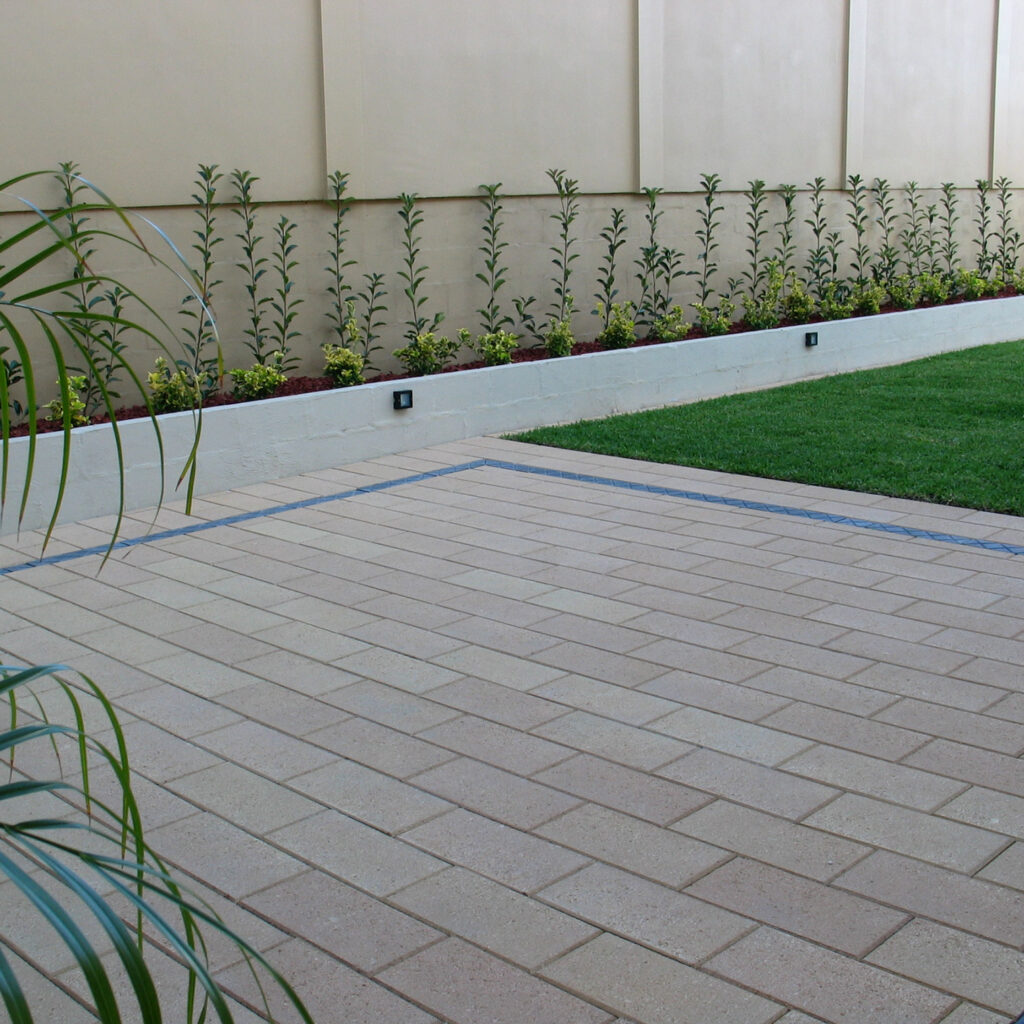

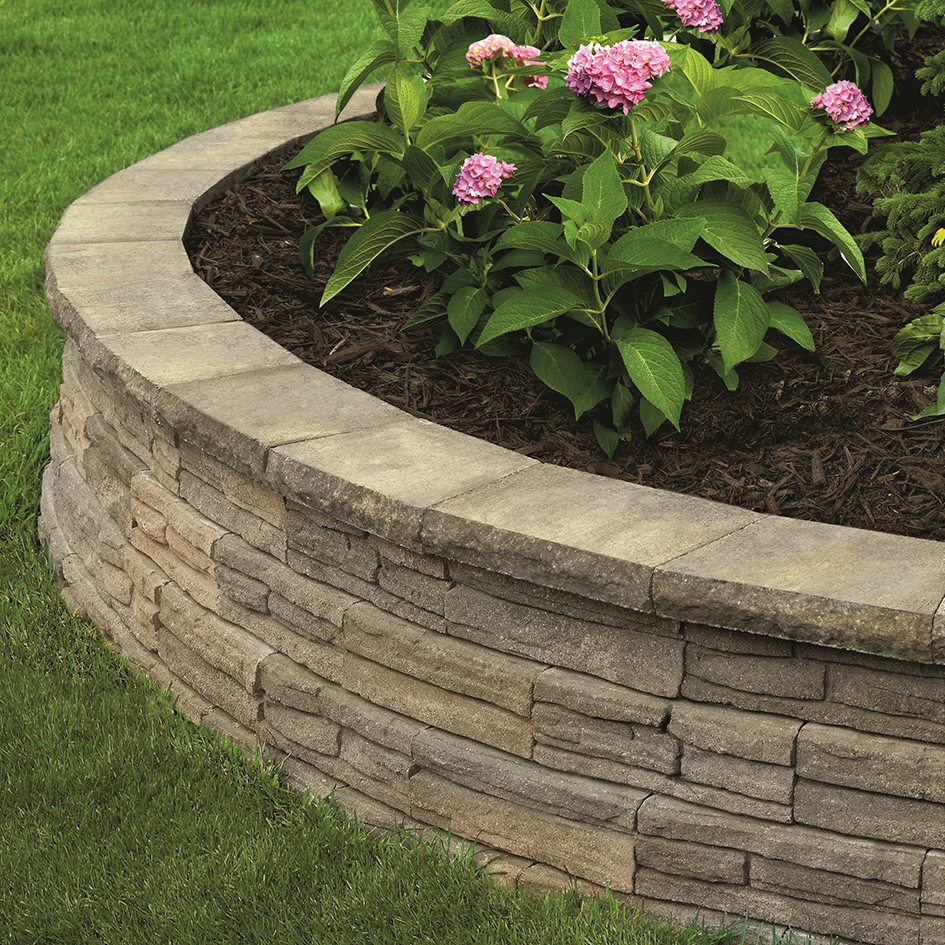
How To Select the Right Product for Your Paving, Retaining Wall or Landscaping Project
When choosing the right paver or retaining wall product for your project, take some factors into consideration.
- Functional – your product needs to serve the right purpose for your project so you need to ensure that the product you choose is right for you. Not all products are created equal. For example, a pool paver needs to be salt resistant to withstand the splashing of the pool water. Another example is that a driveway paver needs to be a minimum 50mm thick to withstand the weight of vehicles and twisting and turning from the wheels. Your retaining wall may need to be near vertical and durable or it may need to curve. Whatever your landscaping project, you need to determine the functionality of the space to ensure the products you choose will live up to it’s purpose.
- Benefits – check the benefits of the products you choose; At APC our pool pavers have matching coping so you can achieve a seamless finish. Or our Stoneware pavers are scratch and stain resistant which makes them perfect for entertaining spaces and can be used for indoor or outdoor purposes so you can achieve a stylish cohesive look. Your retaining wall product may be multi-purpose so can also be used for steps or seating.
- Aesthetics – you invest a lot into your landscaping project so you want to ensure it looks good and the aesthetics also helps add value to your home. Things you may need to consider is if you plan to do other areas later, you may want to ensure that all these elements are either consistent in colour or complement each other. For example, if you are paving your driveway and plan to do a path to your front door or some garden walls, some products match better than others. At APC, we offer free samples so if you’re deciding on a product but want to make sure the colour you choose matches in with your surroundings, you can take home a free sample, making it easier for you to decide.
- Paving Patterns – your paving pattern can be just as important as some patterns are more durable, provide further strength and minimise movement. Areas such as driveways require a more interlocking pattern which further compacts over time providing strength and durability. Travertine offers luxury style French patterns and large format provides a sophisticated and elegant look. Some patterns allow more for aesthetics and using a combination of colours or sizes to create eye catching and visually impressive styles. Your paving pattern can offer style as well as functionality. View our paving patterns brochure here.
- Shapes and Sizes – consider the size and shape of the area you want to pave. Large format pavers can make a smaller space appear bigger. A smaller paver can provide a variety of paving pattern options but may require some additional time to lay given the amount of pavers to cover the same m2 as a large paver.
- Colours and Textures – when selecting your product, the colour and texture also come in to play. The location and purpose of your project plays a vital part when deciding on the surface of your paver. When choosing a colour say for your courtyard or patio area, this colour will set the scene for your entire entertaining area and complement your space by matching colours. The correct texture needs to be considered too, since you may want a slip resistant texture for pool pavers and patio areas.
At APC, we offer free samples so if you’re trying to decide on a colour, you can take a sample home to make choosing your product even easier. Just visit us at APC to pick up your free sample.

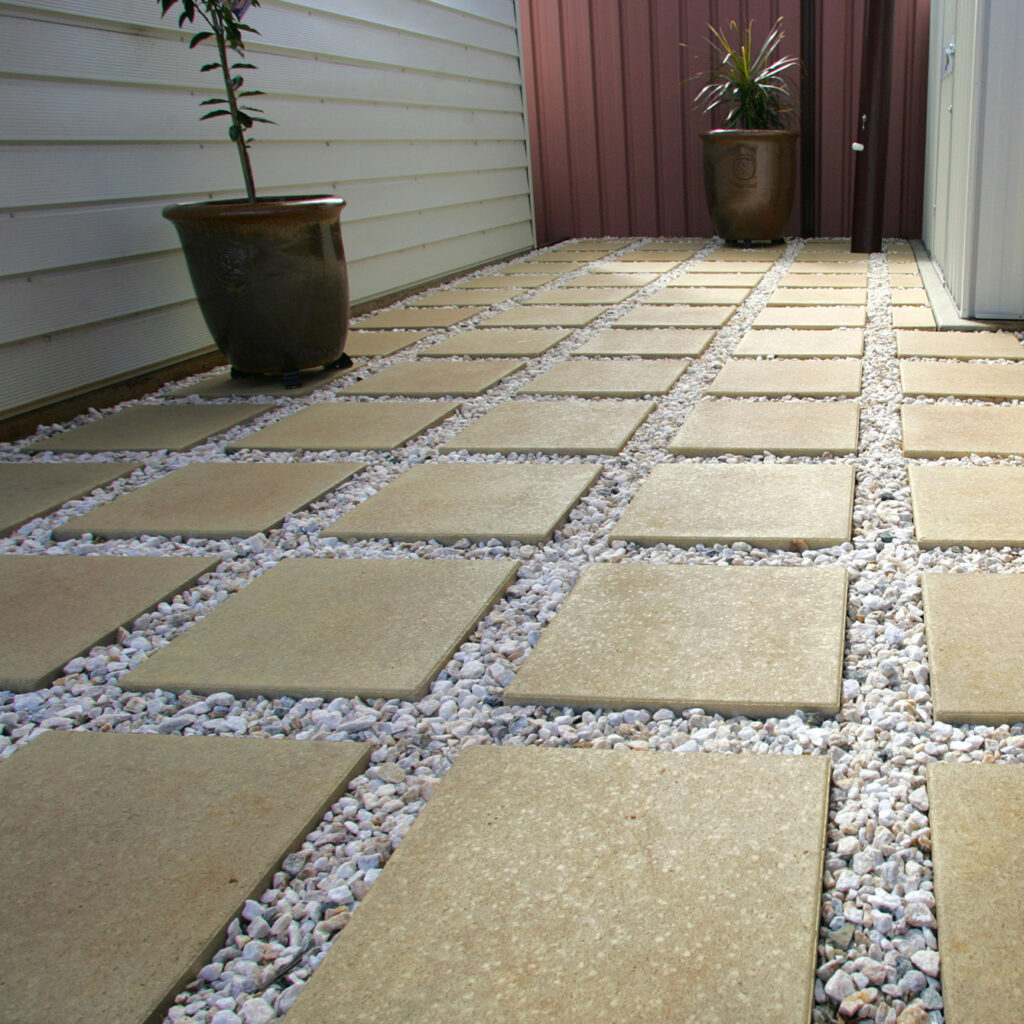

At Australian Paving Centre, we have the largest range of products such as –
Determining Your Paver Quantities
After you decide the colour and texture, next you need to work out how many you’ll need. But how do you accurately calculate how many pavers you will need? The easiest way to do this is by measuring the space you place to pave. Multiply the length and width of your area to get the total square metre (m2). Once you have figured the entire area and how many pavers you’ll need, we recommend adding an extra 5% to the number. These additional pavers will account for cuts and breakages that may happen. You can also download our Area Calculator here.
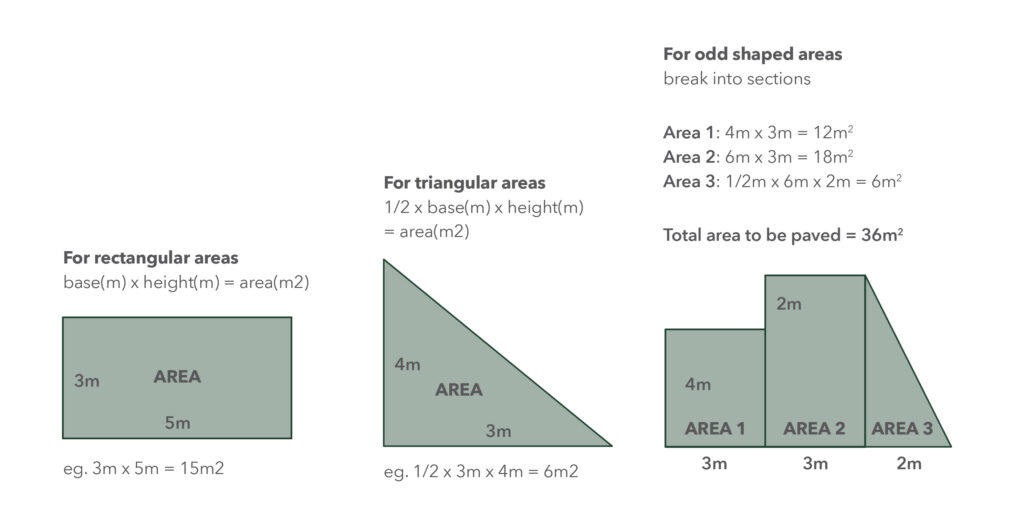
Why Base Preparation Is Important
Preparing your base is essential for any paving, tiling or retaining wall project. Improper preparation can lead to poor drainage, cracking, movement in pavers and retaining walls plus uneven and unsafe areas. Your base should be properly prepared to provide a stable base. Preparation of the ground should not take place in times of heavy rain and if your area consists of any hidden elements such as rocks, extremely hard soil or concrete, these can incur additional costs as well as if added drainage is required as some areas are susceptible to water retention.
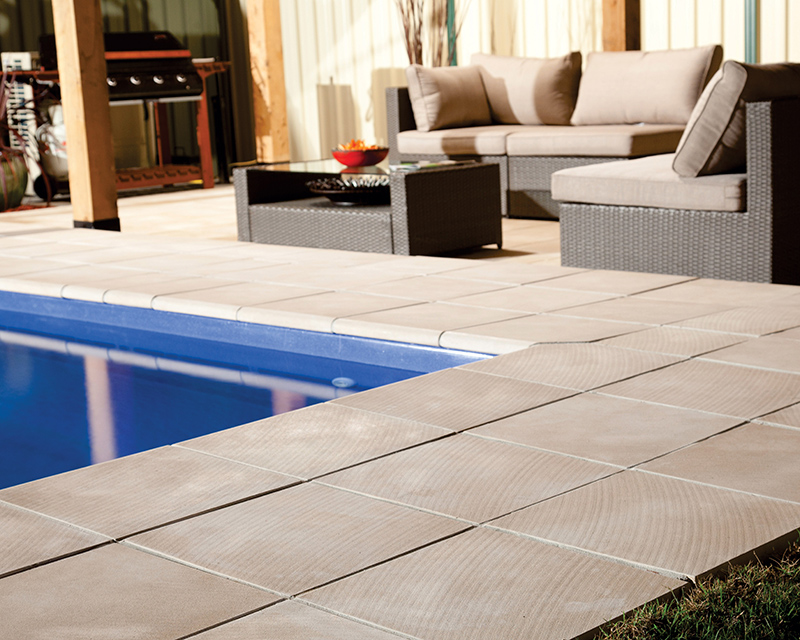
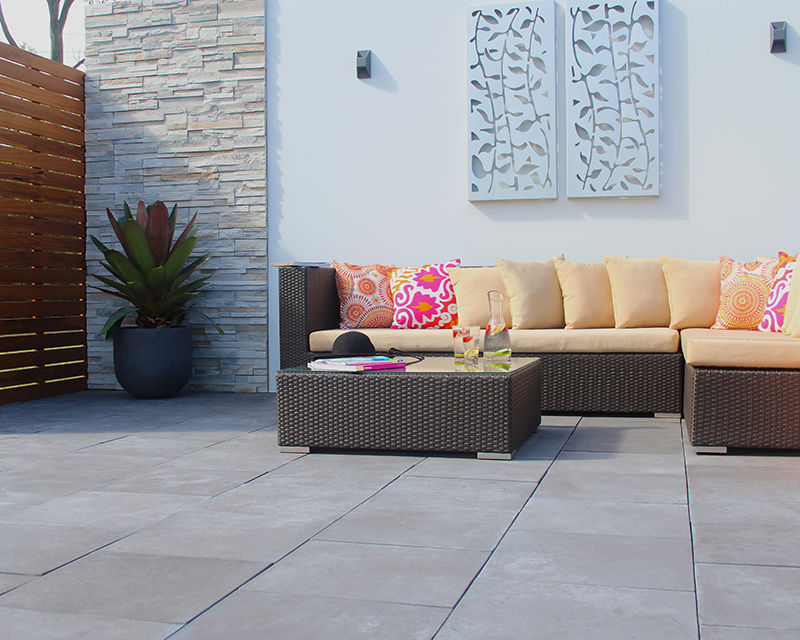
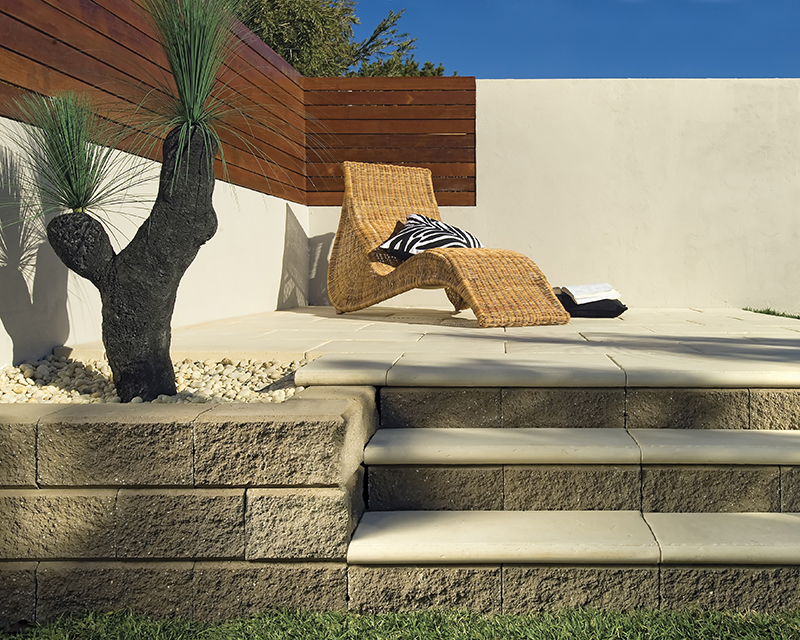
Tips On How to Find the Right Tradie
When it comes to paving or retaining walls, you’ll need to consider whether you’ll hire a professional contractor or DIY. You can hire a licensed contractor and they can do the job for you, guaranteeing quality of work. At Australian Paving Centre, we know the best paving and landscaping contractors. All of our preferred tradies are licensed, insured, qualified and produce excellent work quality, providing maximum value for your money. You can request a quote online and we’ll put you in touch with the right tradie for your project.
- Find someone local. Local tradies should respond to quotes quickly because they are concentrating on work in their local area. If they are local, they are generally on-site more often and readily available to attend to the project for any rectification work or additional small jobs. If you don’t use a local Tradie in the first instance, it is most difficult to get the same tradie back to do a small fiddly job.
- Your local tradie must be licensed for the work they are quoting to complete. Their builders’ license will have a summary of what work they are authorised to do.
- Your Tradie must be insured in case something goes wrong on the job. Accidents can happen!
- The tradie should provide a written quote. It is not unreasonable for them to ask for a deposit prior to starting the job. A deposit of between 33% and 50% is fair for the small operators.
- Ask to see some local work similar to what you are asking them to quote and inspect it.
- Look for the local tradies’ Facebook page or Instagram page and check out their work. Some have websites, but most are very basic. If they don’t have a website, this should not deter your choice because a lot of these tradies do not have a website. Good tradies find their work through word-of-mouth and referrals. The tradies having to rely on service-based internet companies for quotes may not produce good quality work.
- Try not to use a business where the person quoting the project does not work in the industry in a hands-on capacity. Many people find that those that only quote the jobs and do not get involved in installation invariably over promise and under deliver. These types of business structures are more expensive due to higher operating costs of covering the salesperson or the quoter as well as the installation team.
- For best results and better value for money, use the small business owner-operators who quote and build the project they have quoted for you. When the tradie who quotes the job builds the job, you get a much better result of what you are looking to achieve.
- Research and purchase the pavers, retaining wall and landscaping products yourself. It provides a cheaper overall cost for your paving, landscaping or retaining wall project and you buy the product you like and not the product the tradie makes the most money out of.
At APC, as our stores are local and we are dealing with local tradies regularly, we can connect you with the right tradie for the job. You can either visit us at APC or you can request a quote online here and we’ll match you with the best local tradie.
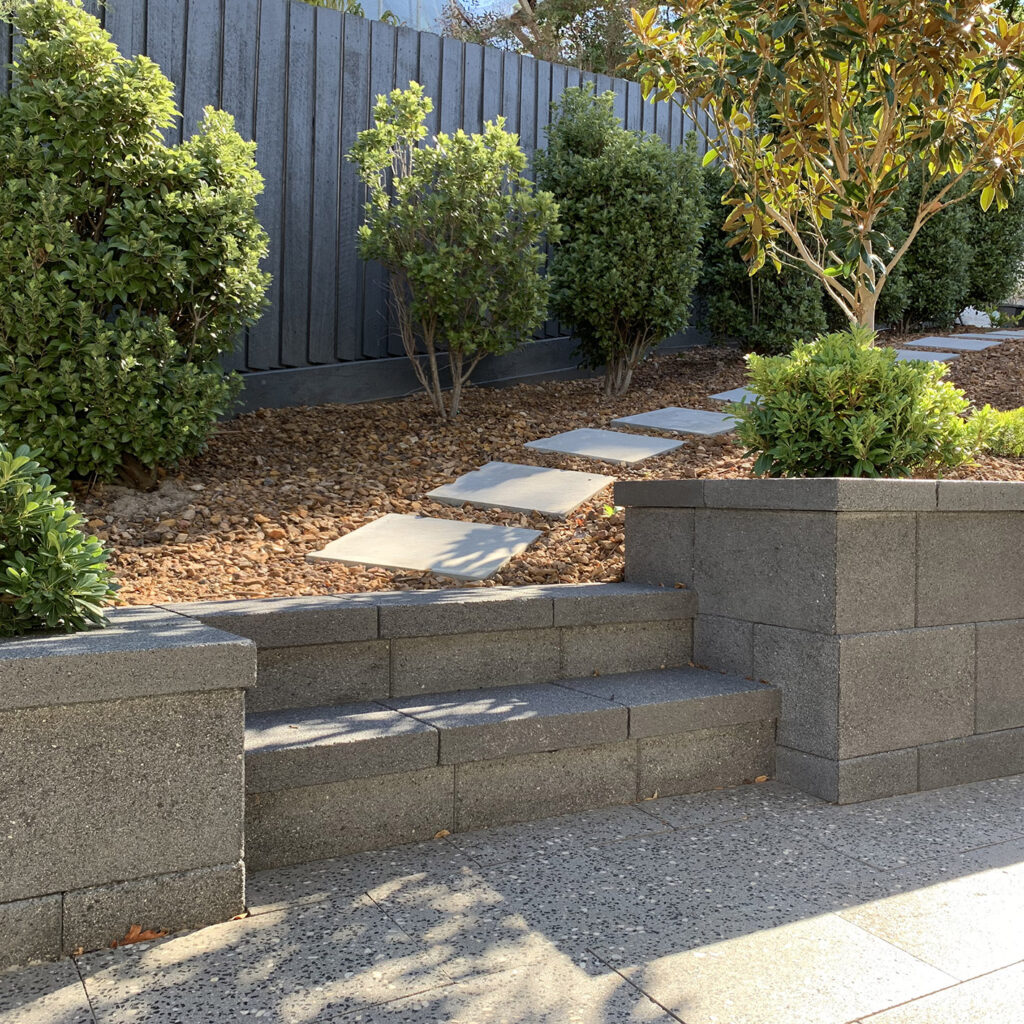
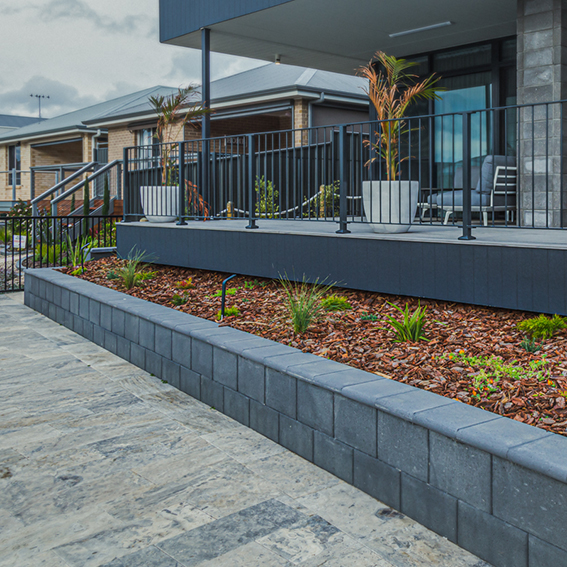
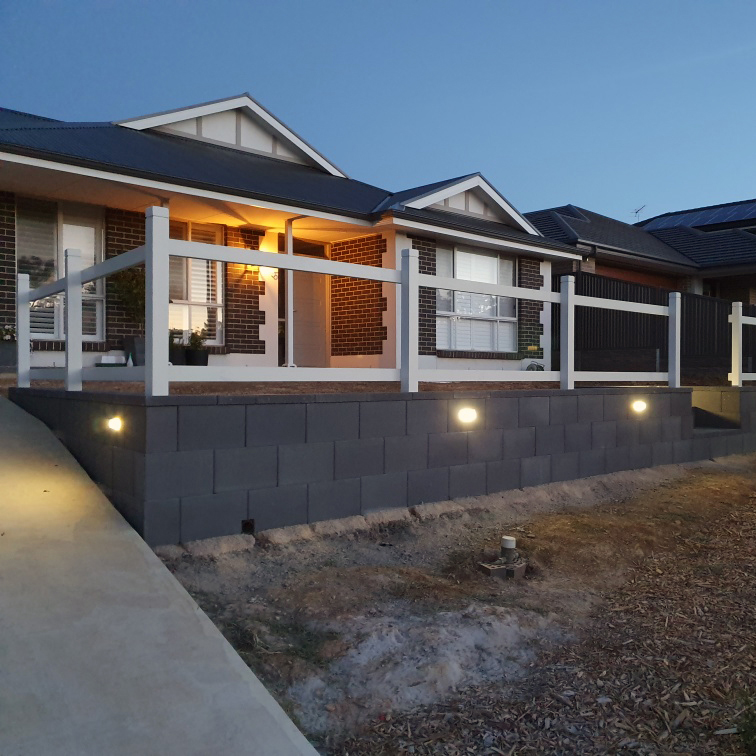
Pricing Guide*
There is no average job size. Factors that can affect your costs include –
- Area to be completed
- Materials required
- Complexity of design
- Project turnaround time
To give you an indication of the breakdown of costs, if a paving, tiling, retaining wall or landscaping project was to cost $5,000, the product materials will cost about $1,666 or about 33% of the total job or quote. In addition, the breakdown of the labour for this $5,000 project would cost about the same as the product materials which is another $1,666 or about 33% of the total job. The balance of these costs of about 33% are made up of sand and rubble, dump fees, earthworks and other miscellaneous costs.
When it comes to getting an installation quote, make sure you do your research and ensure you cover the following –
- What type of paving or retaining wall or landscaping project do you have in mind?
- Is the terrain level or sloping?
- What type of pavers / retaining wall blocks do you prefer be used?
- Do you have an estimate of the size of your area?
How To Avoid Additional or Hidden Costs
- Inspect the area – difficult to access areas may incur additional costs to complete the project. The area should be inspected to ensure that equipment and materials can be quickly delivered. What is the terrain like – is it flat, sloping, very hard soil or rocks?
- Check your design – any complicated work can incur additional labour costs. If budget is restricted, you may need to go with a more straightforward design.
- Research the materials – some materials will be cheaper compared to others. This is why it’s important to conduct proper research on what type of material is needed for the project.
At APC we have already done this research for you.
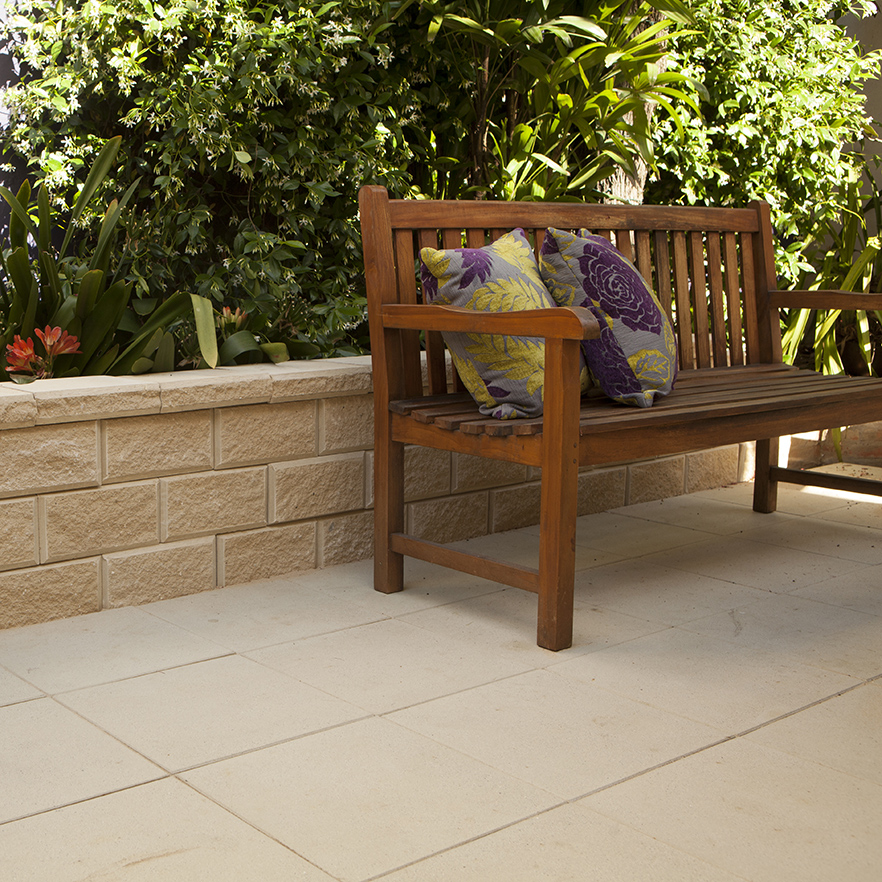
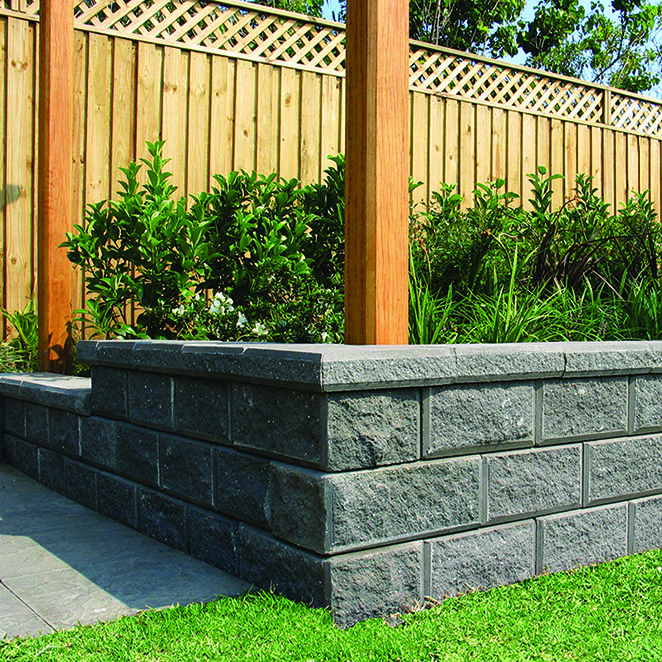
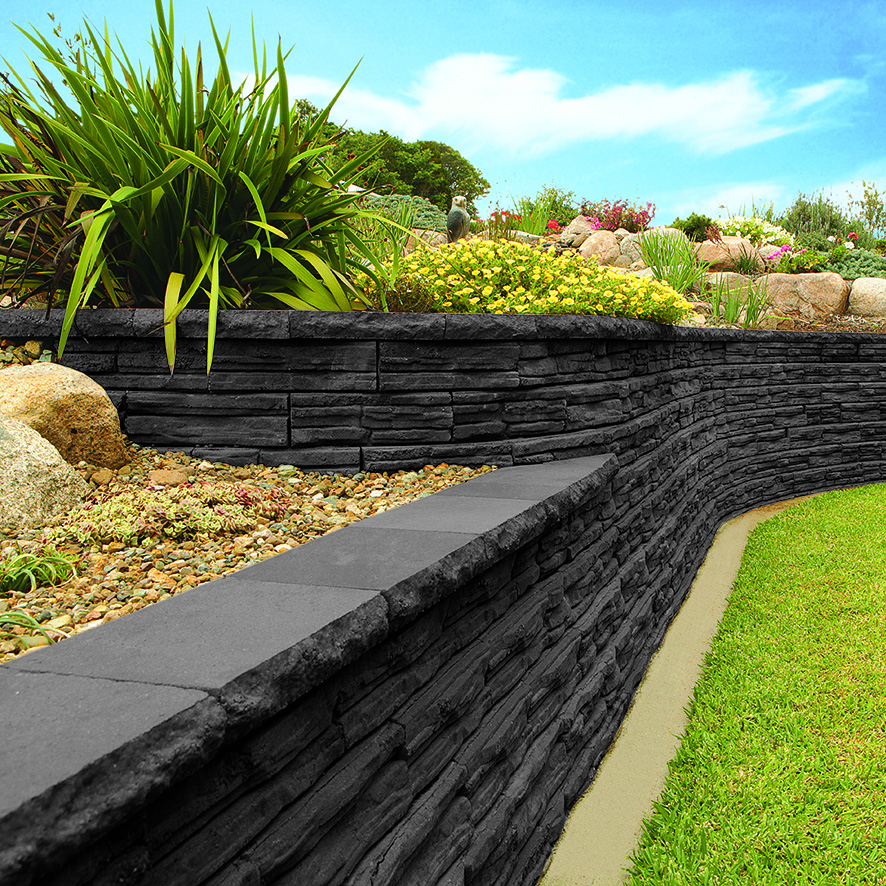
Going DIY?
Doing a DIY project is very rewarding but requires thought, careful planning, the proper tools, the right materials as well as some lifting and patience!
If you’ve decided on DIY, at APC we can help. Browse our extensive Knowledge Centre for valuable resources on any DIY project and we also have a DIY Paving Guide here or visit us at APC to pick up our DIY Paving brochure and whilst your there, grab a free paver sample!
And of course, once the job is done, you can help maintain your pavers by applying a sealer and also read through our Paver Maintenance blog to tackle any stains and marks and keep your project looking great!
Paving and Block Masonry Sealers
Sealing pavers, concrete blocks and masonry walling or veneer stone assists in the protection of products from damage it may face from weather, grime, mould, dirt and other substances like food and wine spillages. Sealers help to repel particles that may stain or stick into the surface or the product and make cleaning easier. Some sealers penetrate into the product and help to prevent and eliminate corrosion or salt attack. Some sealers can also enhance the colour of a product whilst others offer a natural unaltered appearance. At APC we recommend sealers that are locally made, easy to apply and long lasting up to 8 to 12 years before re-application is required.
At Australian Paving Centre, we have a range of sealers which you can view here or visit us at APC and our friendly staff can recommend a sealer product for you.
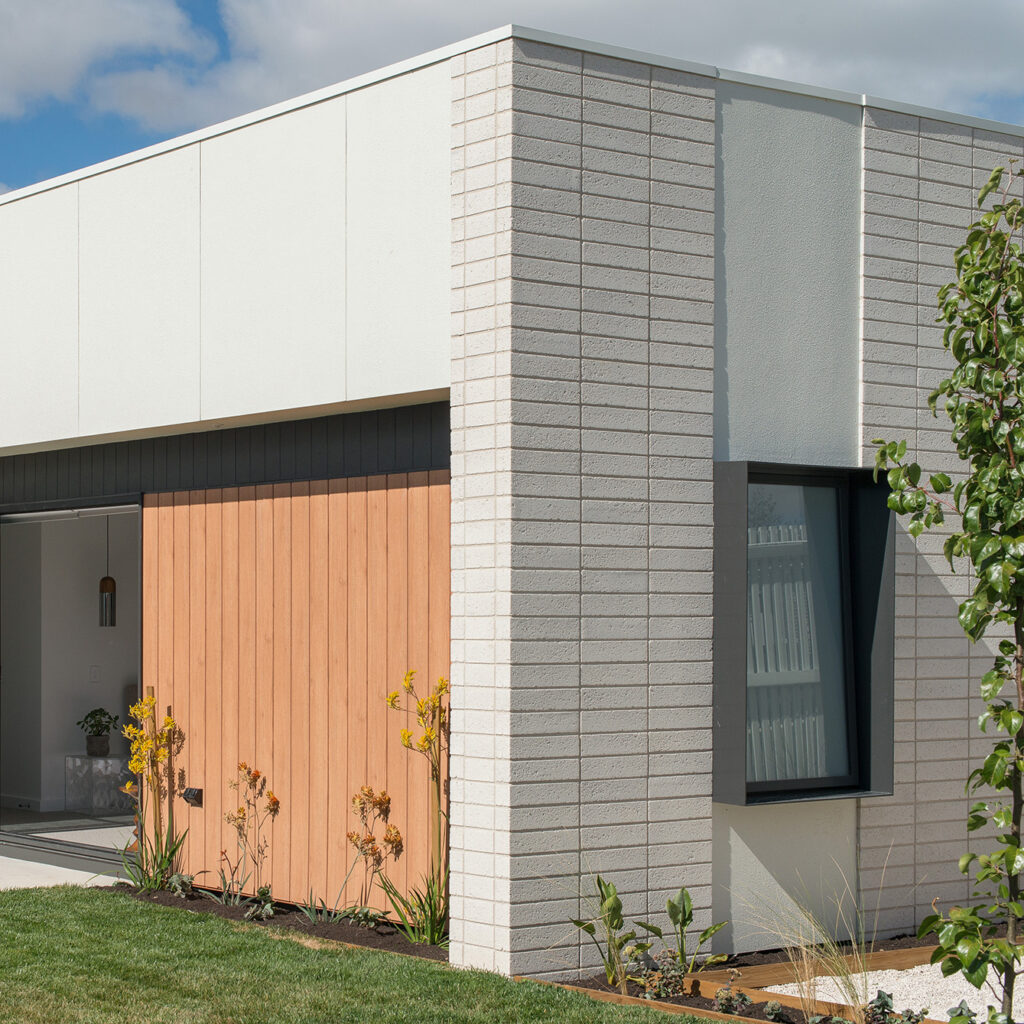
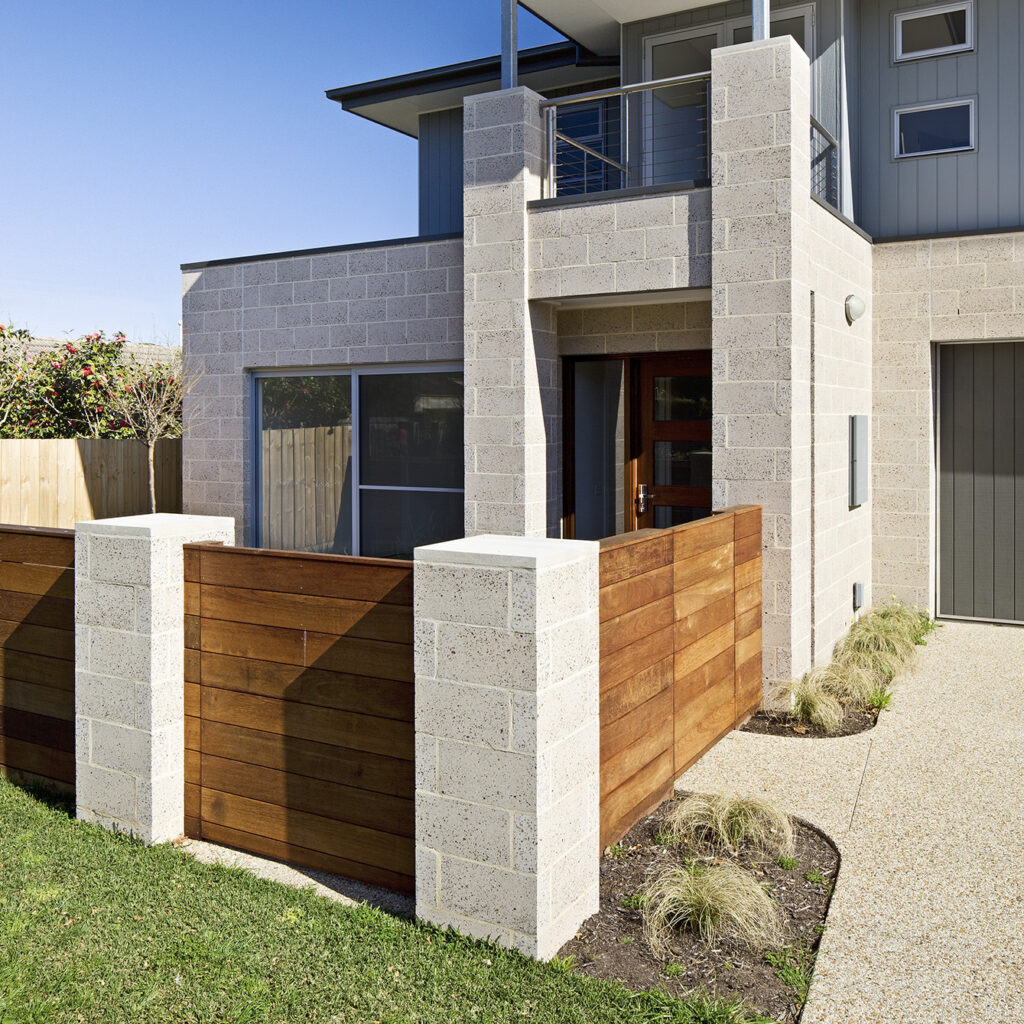
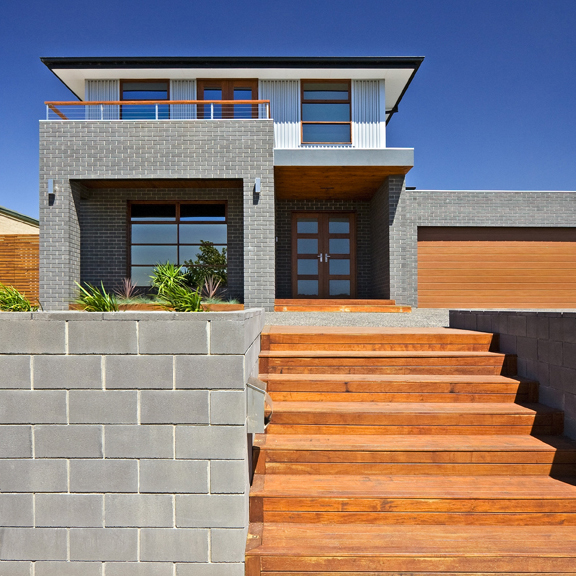
Paver Maintenance
Once your pavers have been laid, here are a few tips to keeping your new addition looking like the day it went down.
Cleaning
Washing down the pavers with a hose or a high pressure domestic cleaner is not recommended until the pavers have settled and the grout sand has set between the paving joints. The best type of sand to use between the joints is a dried sand or a polymeric sand best known as Paveset or similar. This is sold at most of the Australian Paving Centre stores.
During the settling in period sweep only with a stiff outdoor broom or use a garden blower. When using the blower don’t blow it straight in to the paving joints, use it at an angle so as to not blow any joint sand out.
Frequent sweeping and occasional washing reduces the effect of dirt and grime and maintains the attractiveness of a paved area.
General Maintenance
During the initial settling in period & ongoing keep a bag of dried sand or polymeric sand on hand, to top up any paving joints that may need a little extra between the joints.
When you poison the weeds in the garden do the same to any weeds in the paving. The polymeric sand is better, to stop weed growth.
Poison any paving areas that do not get a lot of sunlight or are prone to be moist, damp or cold as these areas tend to promote the growth of fungus & mold.
If you are pulling any weeds out of the pavers try to get to them before they grow too big. If they are allowed to grow too large as you pull them out it will take the gap sand with the root system.
Preventative spot spraying of the pavers, whilst you are doing the garden is the best way to keep the paving free of weeds.
Tip; when doing the pavers & you have a garden wall or retaining wall, spray the face of the blocks every now and then to prevent mold or fungal growth.
After the pavers have been down for some time, there is nothing wrong with giving them a pressure clean every now & then. DO NOT use a commercial pressure cleaner as this may pit the surface of the pavers, dependent upon the type of paver they are. Use a domestic pressure cleaner of about 1500 psi or less.
If you do pressure clean the paving you must top up the sand in the joints. When using a polymeric sand such as Paveset, read the instructions on how to apply it. Do not over fill the joints when using this type of joint sand. APC have a separate DIY Paving document.
Tips To Maintaining Your Pavers
- Do not allow moss, weeds or algae to develop on the paved surfaces. It is important to keep driveway surfaces clean and clear. Use standard pesticides on these surfaces
- Regularly sweep or clean the pavers with a stiff outdoor broom or garden blower
- Occasionally pressure clean your driveway to remove stubborn dirt
- Top up the joint sand when required
- Always maintain good drainage away from the paving and ensure your storm water drains are clean & running water freely away from the paved area
Having a hard time finding the right tradie? APC can match the right tradie for your landscaping project and you can request a quote online here.
*cost and prices indicated in this post were sourced at the time it was written and might vary locally and are subject to change and should only be used as a guide.



Visit us at APC to pick up a free sample!
Or, send us a product enquiry or request a quote online
If a retaining wall or landscaping project was to cost $5,000, the product materials will cost about $1,666 or about 33% of the total job or quote. In addition, the breakdown of the labour for this $5,000 project would cost about the same as the product materials which is another $1,666 or about 33% of the total job. The balance of these costs of about 33% are made up of sand and rubble, dump fees, earthworks and other miscellaneous costs.













